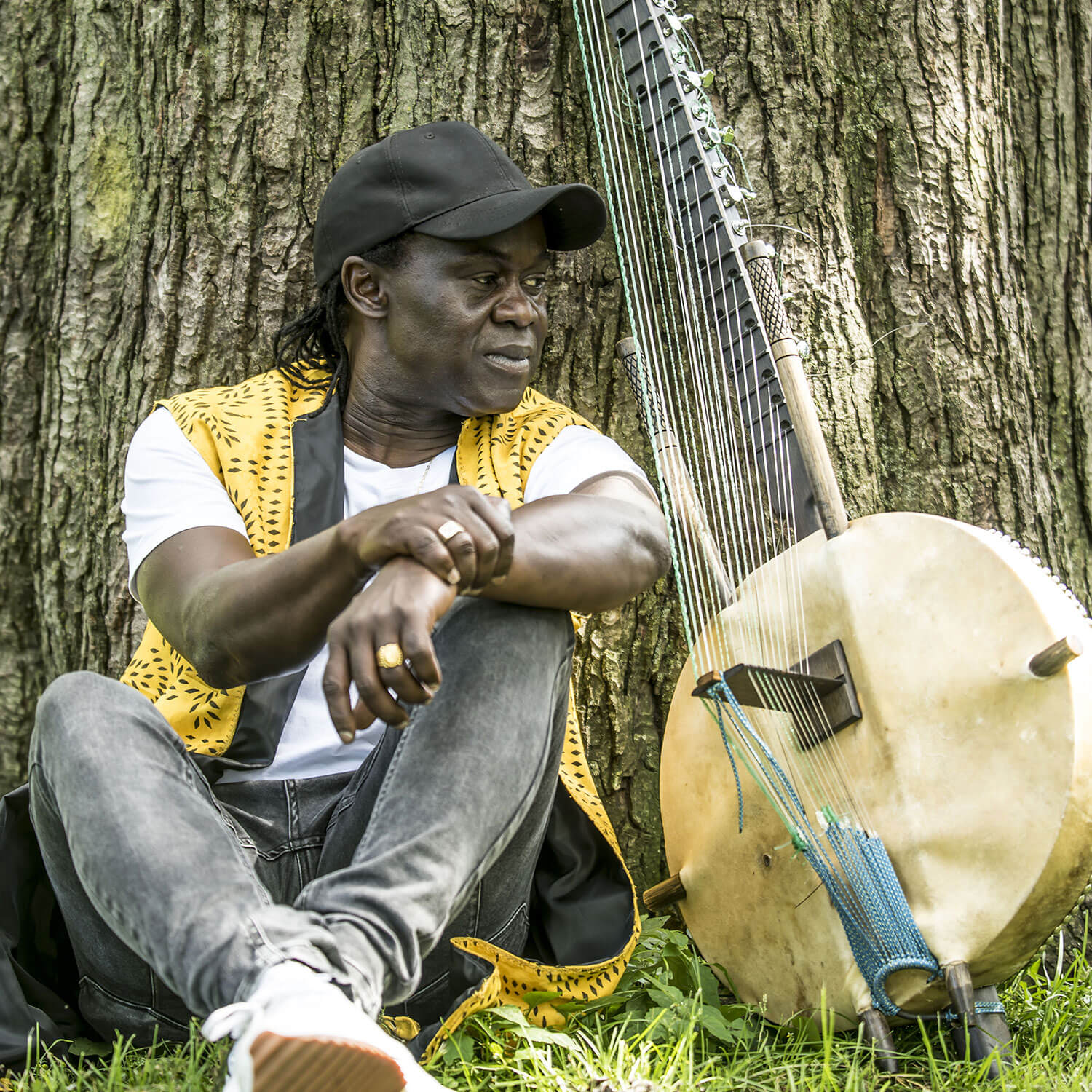BIOGRAPHY
His story is written on the stings of the kora… it is how Zal Idrissa Sissokho, in all his mystique, reveals himself. Loyal to African griot traditions, this artist from Kolda, in southern Senegal, transmits history and age-old wisdom while taking a candid, poetic look at both his contemporary world and the past. Venerable member of this great griot family that harks back to the 13 th century, and to the first Sissokho griot, “a man of science and truth, a master of words”, Zal stands with pride by his muse, the kora. As a singer-songwriter, he honours his linage by singing in Malinke and Wolof, a tribute to the noble oral tradition of Sundiata Keita’s Mandinka Empire.
In 1999, Zal Sissokho put down new roots in Montreal and integrated into the local arts community. In addition to joining the ranks of the African diaspora, such as Corneille and the Diouf brothers, especially Élage who welcomed him like a brother, he would accompany Richard Séguin and the group Hart-Rouge. His virtuosity spread further when he played in Cirque du Soleil’s Las Vegas production of “Ô”, and his music formed the musical backdrop to Robert Favreau’s feature film, Un dimanche à Kigali. Zal has travelled the world in search of music’s universality, including to Brazil and Spain, which stirred his imagination. His versatility and openness to the world are reflected in his discography. In 2008, he released his debut album, Silaba, with his band Buntalo, singing of the mother figure and her “Teranga.” Then, in 2012, influenced by reggae and world music, he came out with a joyful ode, Le Partage. Later, he found himself in the company of Brazilian artists, Sergio Pererê and Marcus Viana, and discovered an ideal rhythmic fusion to combine with his lyrics, which led to the 2015 album, Famalé, a musical panorama linking his adopted city of Montreal with the shores of Belo Horizonte and his native Senegal, entirely produced in Brazil with world-class musicians. Two years later, he was back in Montreal with his Buntalo mates, paying tribute to legendary Quebec artist, Gilles Vigneault, on his 2017 album, La Palabre, which is infused with themes and characters at the heart of his celebrated man’s identity. In 2020, a fusion of Zal’s 21-stringed kora and Caroline Planté’s flamenco guitar joined the fiery lands of Andalusia and the deep ochre of West Africa, where the ancestors cradle the days and nights, creating a unique sound that earned them recognition from ADISQ (album of the year) in the World Music category as well as the Canadian Folk Music Award for World Music Album of the Year. A popular Nuits d’Afrique artist, Zal shared the stage last July with fellow countryman and renowned
musician, Seckou Keita, during the “Nuit de la kora”. The Disque Nuits d’Afrique label, which produced Silaba, Le Partage and La Palabre, has brought Zal and his band good fortune, and La Source shall be the fourth part in this creative series.
The fall of 2023 will sound a new song for Zal Sissokho, La Source—a message of harmony and togetherness with love. Nine tracks to get hands clapping and hips shaking like at a barefooted fiesta in the village of Humanity. In the song “Djeliya,” Djely Tapa’s powerful voice rises like a hymn with lyrics that go straight to the heart of the Mandinka griot’s art, “We are born griot, we don’t become one,” while the song “Kela” sets Élage Diouf’s voice to the credo of surrendering to life. Because, for each of us, what will be, will be.




